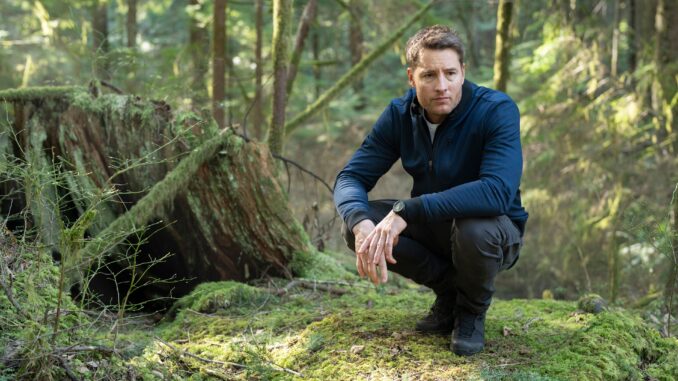
Velma has been pivotal to Shaw’s work because she’s the backbone, helping Colter find jobs regarding missing persons cases. Velma also handles the financial aspects of Colter’s operation and gets him out of danger when he’s caught up in legal trouble. Reenie also helps get Shaw out of trouble from time to time, including bailing him out of prison, as well as providing her legal expertise to Colter when assisting him with certain cases. Although Reenie is primarily a lawyer, she isn’t fearful of placing herself in dangerous scenarios and standing up to authoritative figures like the police.
Bobby Exley is also a loyal companion to Shaw, including providing technical support, analyzing data, and hacking in order to retrieve vital information Colter needs to do his job. Randy also shares his cousin Bobby’s technical expertise while also displaying a more quirky and outgoing personality. While all the members of Shaw’s team each have an important role to play in Colter’s search for the missing, their characters need more depth on the show, including their backstories, rather than just aiding Shaw in his missions.
From the moment Tracker hit our screens, audiences were intrigued by Colter Shaw’s lone-wolf, nomadic lifestyle. He was mysterious, resourceful, and strangely detached—but the showrunners decided to saddle him with something that just didn’t quite click: a team of “handlers.” What should have been a cool support system turned into one of the show’s most puzzling creative missteps. But why?
Let’s break it down.
What Are Handlers, Anyway?
The Basic Idea Behind Handlers in TV Tropes
In shows like Alias, Burn Notice, or even The Blacklist, handlers are typically offsite operatives who feed information, coordinate logistics, and act as lifelines to the main character. They serve a functional purpose—and often, an emotional one, too.
But in Tracker, this concept was undercooked.
The Intent vs. The Execution
What the Creators of Tracker Tried to Achieve
The handlers were clearly meant to ground Colter—humanize him, create tension, maybe even build a sense of community. The idea was simple: this man might be a loner, but he isn’t alone. In theory, this gives viewers multiple perspectives into Colter’s world.
But theory didn’t translate into reality.
The Problem With Chemistry
Zero Emotional Investment
Viewers never felt invested in the handlers. Why? Because the show never gave us a reason to care. We barely knew their backstories. The emotional stakes were missing. It was like watching people punch buttons on a computer while Colter risked his life in the field.
No Real Dynamics
Compare that with Person of Interest—where Finch and Reese had palpable, evolving chemistry. In Tracker, the team dynamics were flat. Conversations felt more like task management than actual relationships.
Colter’s Lone-Wolf Persona Doesn’t Mix
His Character Was Built for Isolation
Let’s face it: Colter’s strength as a character lies in his independence. He’s a modern-day drifter, a philosophical bounty hunter. Trying to tether him to a static team simply clashes with his whole identity.
Independence as a Narrative Device
Colter’s solo nature allows the show to explore new people, towns, and mysteries each episode. Handlers just bog down that narrative freedom. It’s like putting shackles on a character built to roam free.
Shallow Storylines for Handlers
Who Even Are These People?
The writers never fully fleshed out the handlers. Sure, we know their names and roles, but what drives them? What are their personal struggles? Their histories? We never got those rich character arcs that turn side characters into fan favorites.
Missed Opportunities for Depth
Imagine if we got flashbacks or side plots that revealed more about the handlers. Instead, they remained bland. Background noise, not real contributors to the story.
Pacing Issues Created by Handler Scenes
Breaking Momentum for Tech Talk
There’s nothing worse than cutting away from a high-stakes chase or dramatic confrontation to watch someone type on a keyboard. That’s exactly what happened—again and again. Every time we returned to the handler’s bunker or office, the tension evaporated.
Disconnected Narratives
The show often felt like two parallel storylines: Colter’s action-packed quests and the handlers’ dull conference calls. There was rarely a compelling bridge between the two.
Contrast With Better Execution in Similar Shows
Let’s Look at The Mentalist
Patrick Jane often worked alone but had a team of well-developed agents supporting him. Each had a unique personality and meaningful interactions. In Tracker, the team feels more like customer support.
Or Consider Sherlock
Even Sherlock’s dependence on Watson feels earned and authentic. Watson is critical to the story, emotionally and intellectually. The handlers in Tracker? Not so much.
Did the Handlers Ever Evolve?
Minimal Growth Over the Season
Despite the show having an entire season to make the handlers matter, their roles barely shifted. No character arcs. No surprises. No standout moments. Just the same dull loop.
Attempts at Tension Fell Flat
There were moments when the show tried to create drama—like disagreements over Colter’s next move—but these never escalated or had consequences. Tension without payoff quickly becomes background noise.
What Fans Are Saying
Reddit and Twitter Weigh In
A quick dive into Tracker threads on Reddit or reactions on X (formerly Twitter) reveals a consensus: the handlers are the weakest link. Many fans even skip their scenes entirely. That’s never a good sign.
Fan Theories Show More Creativity
Ironically, fans have built better narratives around the handlers than the show ever did. Some suggest dark backstories, betrayals, or secret agendas—none of which the show explored.
How It Could Have Worked
Give Them Field Time
Let at least one handler leave the desk and work with Colter in the field. Think Bones or Castle—those support characters became beloved because they were hands-on.
Real Stakes and Subplots
Inject personal dilemmas, secrets, or even betrayals into the handlers’ lives. Viewers love multi-dimensional characters. Think about how Breaking Bad built an entire subplot around Hank Schrader, a “side character.”
Handlers Felt Like a Network Obligation
Were They Just There to Appeal to Studio Notes?
There’s a theory floating around that the handlers were added to satisfy studio pressure for ensemble casts. If true, that explains the shallow writing—like checking a box rather than developing a world.

Final Thoughts: A Concept That Never Landed
The idea of giving Colter handlers wasn’t inherently bad. With the right writing and execution, it could’ve elevated the show. But what we got felt like filler—flat, formulaic, and fundamentally misaligned with the protagonist’s essence.
Conclusion: Colter Deserved More, And So Did We
In a show built around exploration, danger, and solitude, the handlers just didn’t belong—or at least, not the way they were written. Tracker had the potential to redefine modern mystery dramas, but it got weighed down by characters who never felt real, urgent, or necessary.
Sometimes, less really is more.